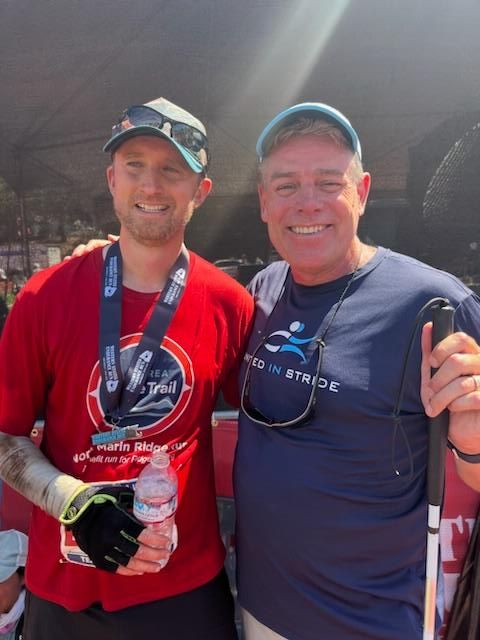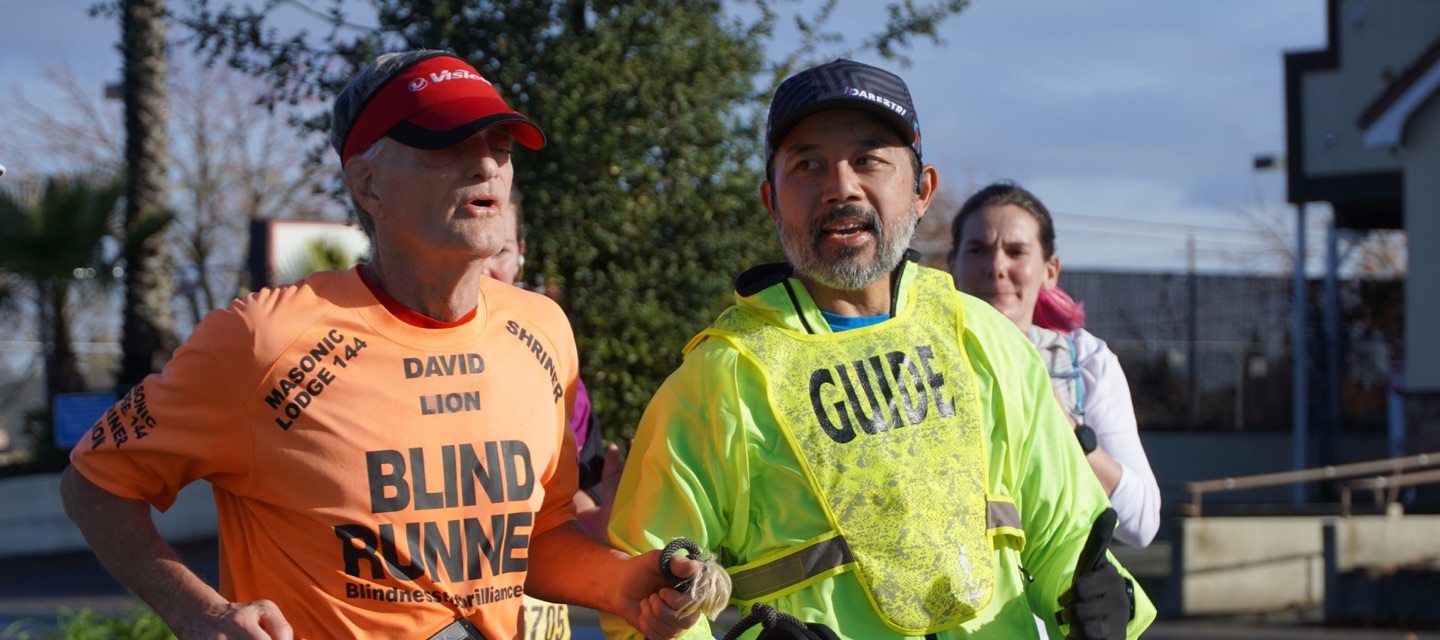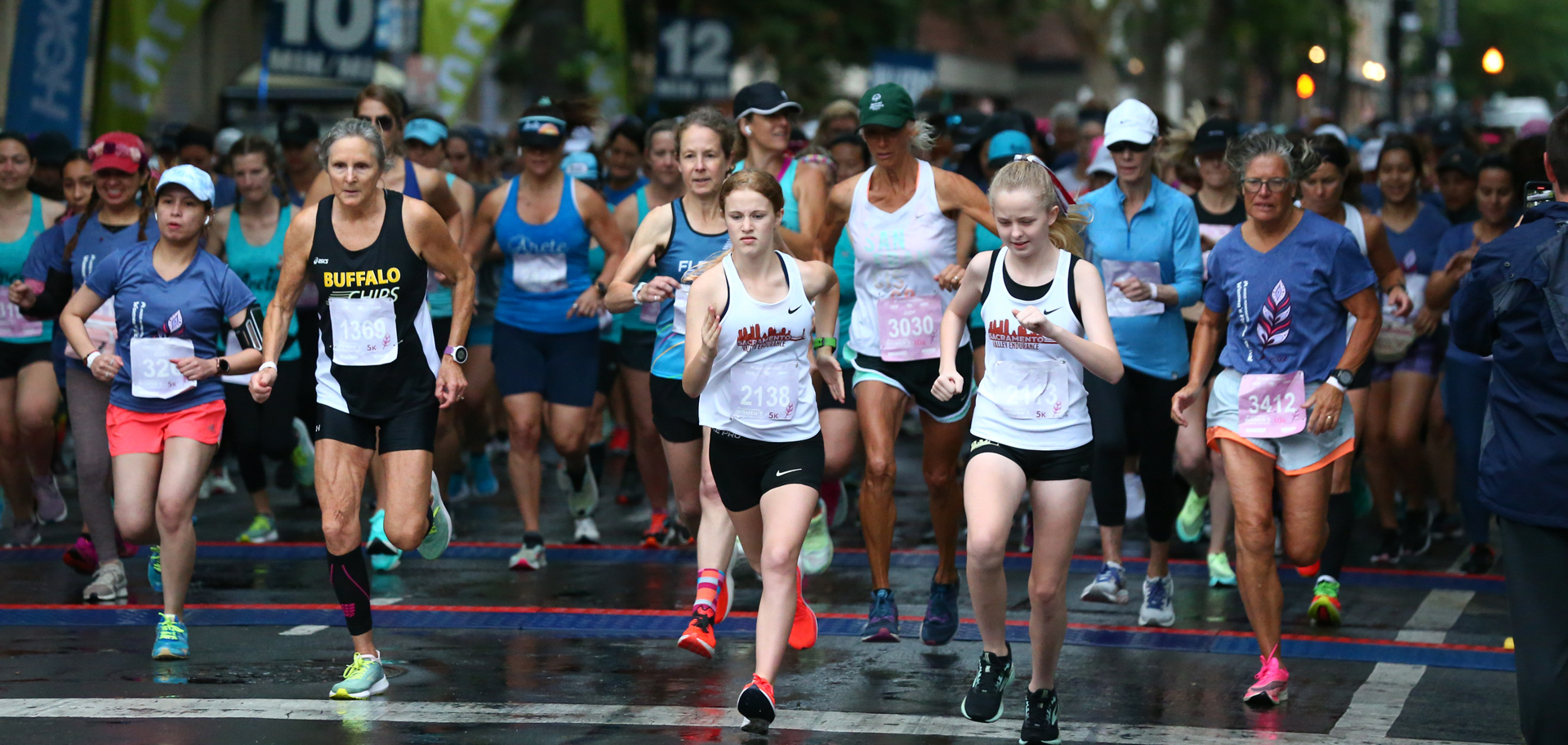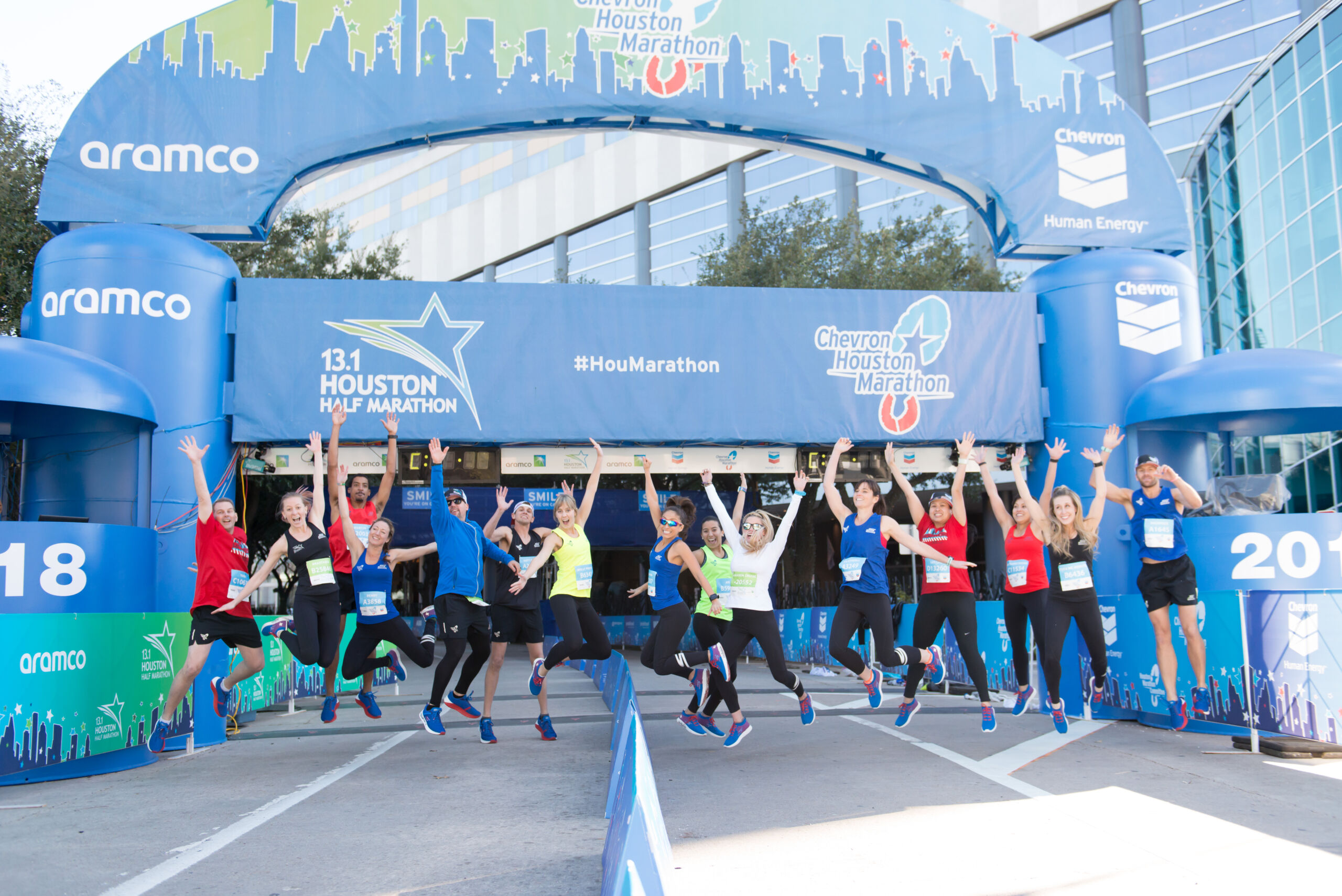Western States runner aims to become first visually impaired finisher
August 15, 2024

By Jordan Georgeson
Read the original story on Gold Country Media here
One competitor has a chance to make history at this year’s Western States Endurance Run, and all he has to do is cross the finish line at Placer High School.
Of course, that is easier said than done, as the 100-mile course is as unforgiving as they come, but Mill Valley’s Will Barkan is determined to become the first visually impaired runner to finish the world’s oldest ultramarathon.
Barkan suffers from Stargardt disease, a rare eye disease that occurs when fatty material builds up on the part of the retina needed for sharp, central vision.
“Basically, it means I have limited to no central vision and it continues to deteriorate, so I have a blind spot in the middle of my vision,” Barkan said Monday in an interview with Gold Mountain California News Media. “I still have very useful peripheral vision and ambulatory vision, which is pretty good for running, but the main challenge for me is that I just can’t see stuff right in front of me.”
Barkan was diagnosed with Stargardt disease as a child, and while it cost him his baseball career, he didn’t let it stop him from staying active.
“My dad took me out of baseball when I was 10 because of my vision and then got me in with a track club,” Barkan says. “I’ve been running track and cross country since I was 10. I started running marathons in my 20s and then when I moved back to California in my 30s, I got into ultras.”
When Barkan was diagnosed, he understood the disease would limit what he could do professionally but he always found ways to push the limits of what was possible. He knew he was limited in the jobs he could do when he grew up but still found a way to break down walls. Barkan said he applied the same philosophy to ultrarunning.
“Originally, I worked for the government and my disease was something that prevented me from deploying to combat zones, but I convinced them eventually that it wouldn’t be a problem and I ended up deploying to Afghanistan three times,” Barkan says. “For ultras, I initially thought that I wouldn’t be able to run races longer than a 50k.”
That changed when Barkan met Kyle Robidoux, the first visually impaired runner to attempt Western States in 2019. Robidoux timed out, but he inspired Barkan to begin running 100-milers with the hope that someday he might have a chance to run Western States.
“He got me connected with some sighted guides to run with me so I could run at night,” Barkan says. “That basically opened up my ultrarunning options, where I could do bigger runs like 100Ks and stuff like that.”
As Barkan began to challenge himself more and more, he found it was harder to find guides who were willing and able to do ultramarathons. For Western States, he will run with a group of five guides who have been with him since the beginning of his ultrarunning journey. Each guide will accompany Barkan for roughly 20 miles throughout the day, meeting him at various aid stations.
Running the final stretch with Barkan will be his fiancée, Kim, who he met through the ultrarunning community.
“She’s the powerhouse in the group. She’s done a lot of hundreds, and I have a whole series of other runners in there that serve as guides as well,” Barkan says. “We are all accomplished ultrarunners in our own right and several of them I have run ultras with.”
Barkan knows what comes with the territory of being a blind runner. Normally, he is seen as just another runner on the trails, but the moment he puts on his bib that says “blind,” he’s forced to wear it as a badge of honor.
“People don’t normally talk to me for interviews. Once I put the blind insignia on, people say things. People talk to me, and I get put in a position where I do have to represent blind people,” Barkan says. “Wearing the bibs does attract more attention and occasionally, I’ll get some dumb comments, and you just have to try to prepare for that and not get mad.”
Barkan uses his platform to promote guides, even working with an organization called United in Stride that connects guides with visually impaired runners. He also he feels a responsibility to represent the disabled running community, and while he knows it adds some pressure, it also drives him to reach the finish line.
“I want to be a good diplomat for them,” Barkan says. “ I’ll be thinking of some of the other people I know in the blind running community who helped me get here. Some have little to no usable vision. With the running I do, I try to always keep that in mind when I get to have a bad day or trip and fall or whatever. I just get up and do it again because there are some people I know that can’t.”
Barkan was selected to run in Western States in the lottery. He entered with just eight tickets and he knows his selection could be his only opportunity to run in the most prestigious ultramarathon.
“I was expecting this to take a lot more years to get into, and I finally did it. I did all my preparations for this all year and now it’s weird. Now it’s race week. I’ve done all my prep and everything,” Barkan says. “This is a once-in-a-lifetime opportunity these days and I just feel really lucky to get in. There’s a lot of ultras, but this one has the highest visibility for media and exposure.”
The 51st running of Western States begins Saturday, June 29, in Olympic Valley and ends Sunday, June 30, in Auburn.
Asked what it would mean to cross the finish line at Placer High School, Barkan said, “I do my crying at ultras and I’ll probably do my crying there. It’s very surreal when you just think back to when you first heard about the race and now you’re finally there doing it. I’m just trying to appreciate that.”



